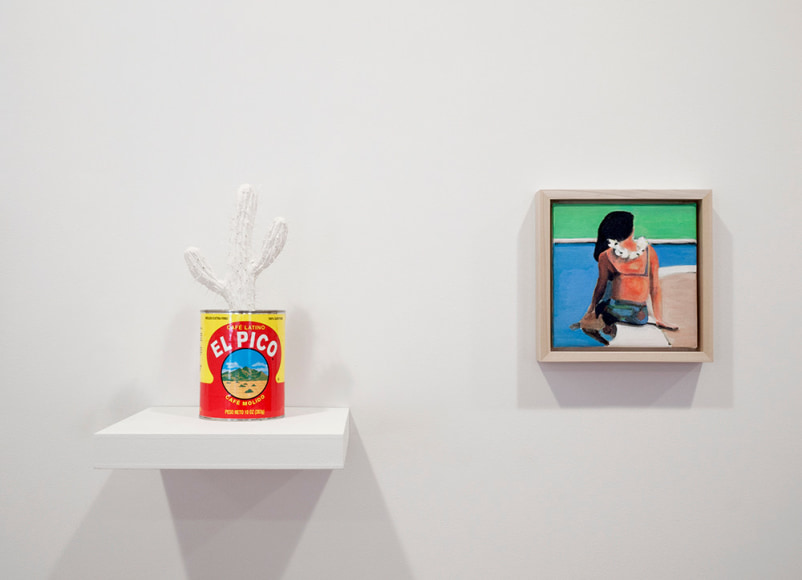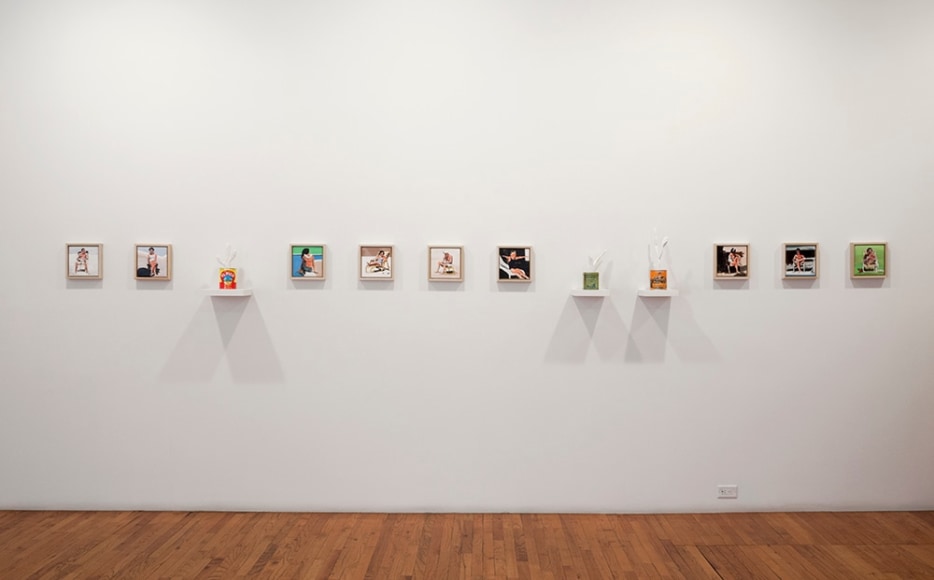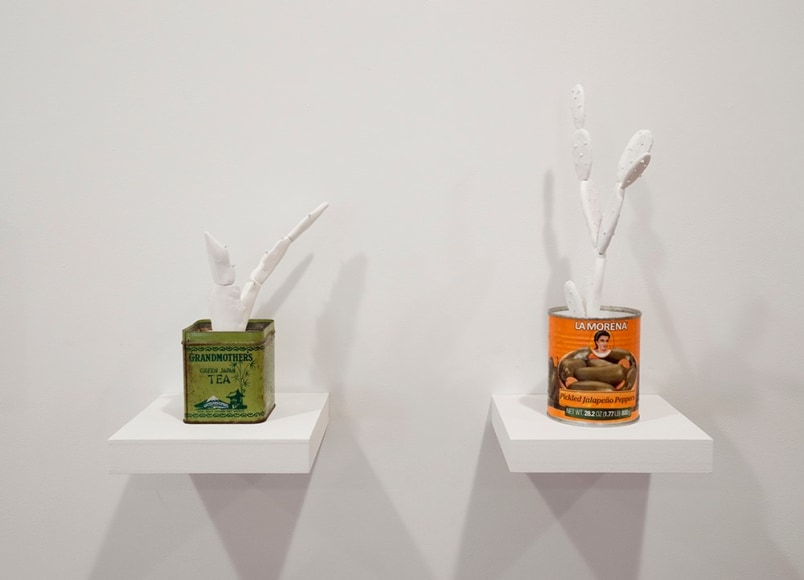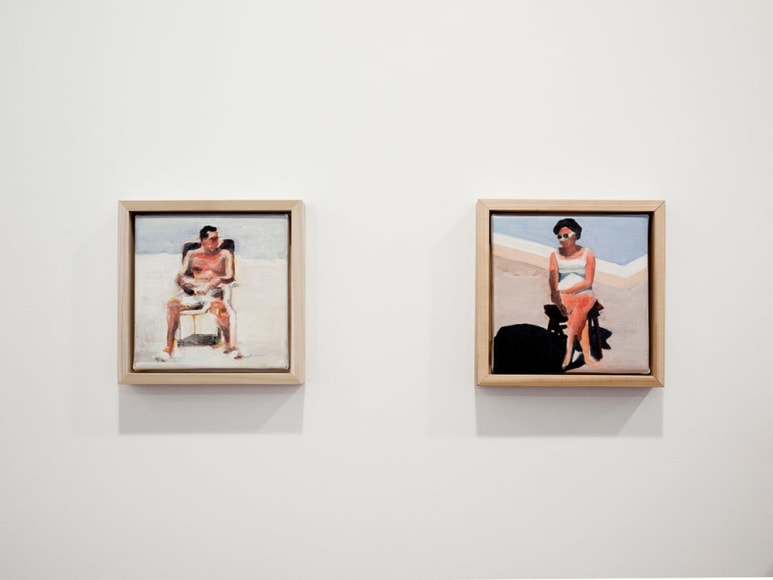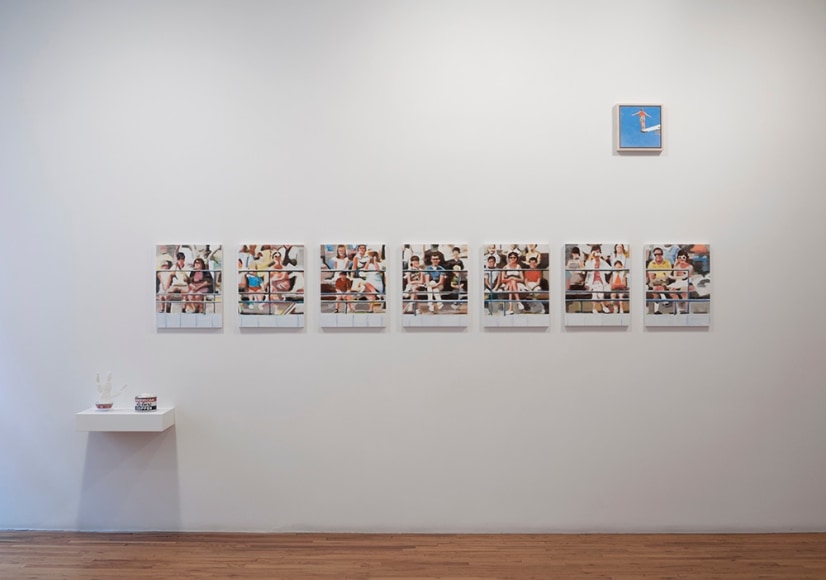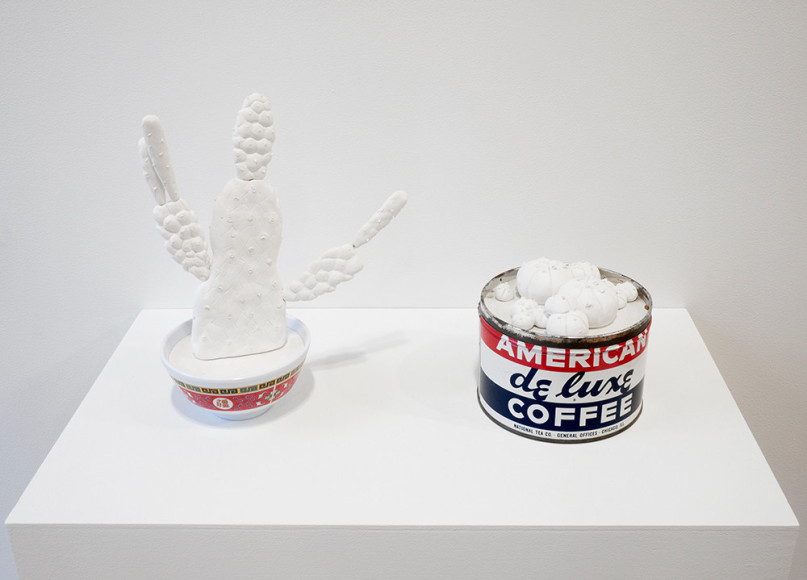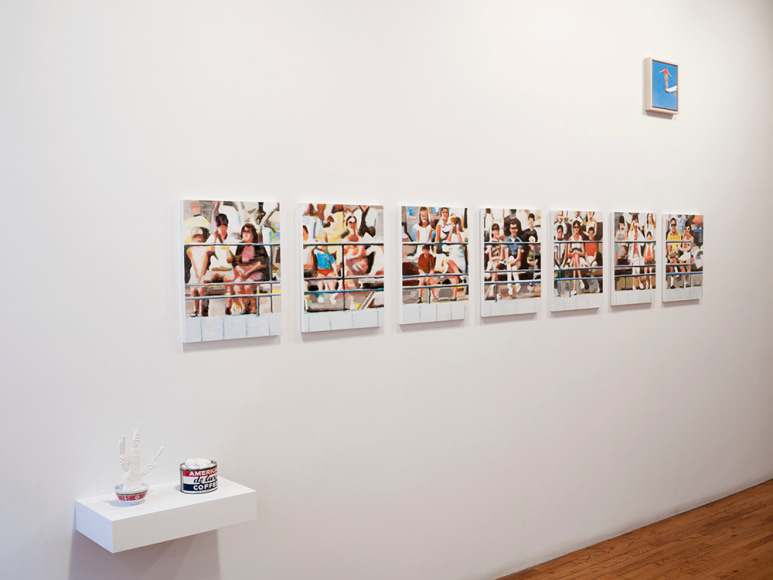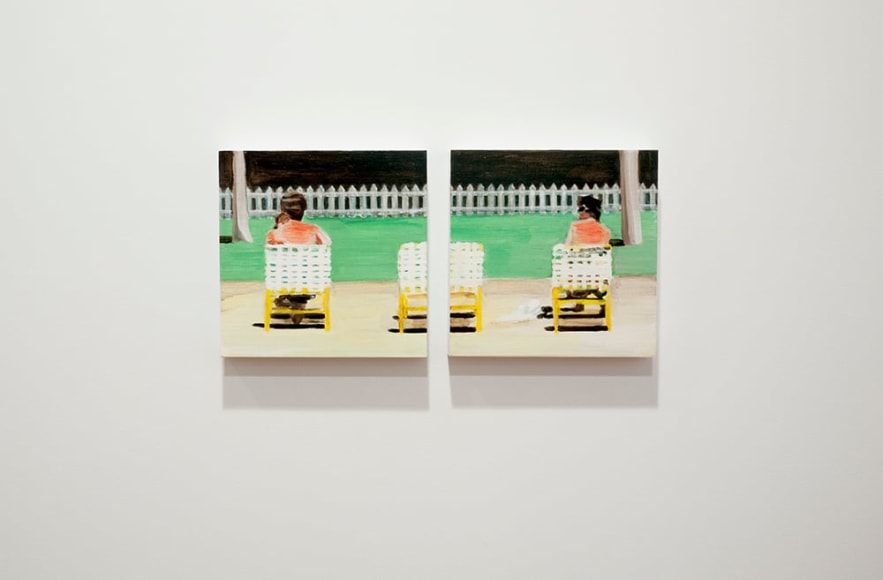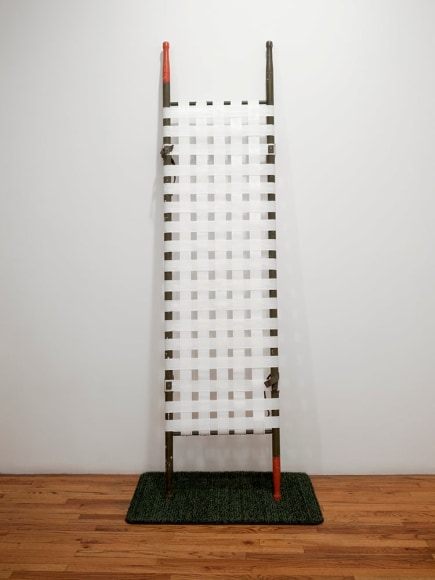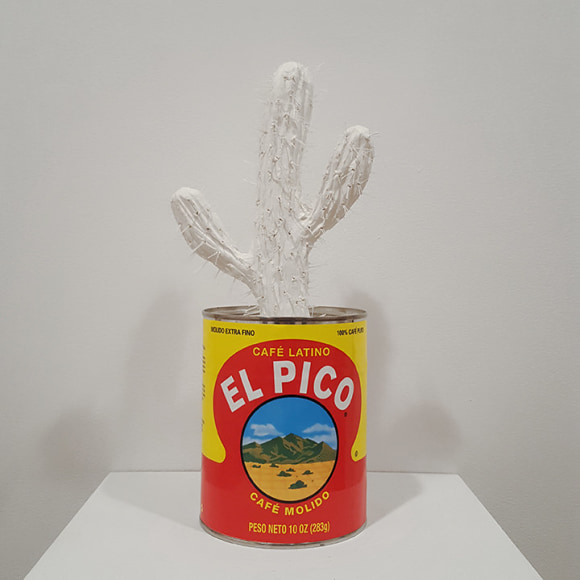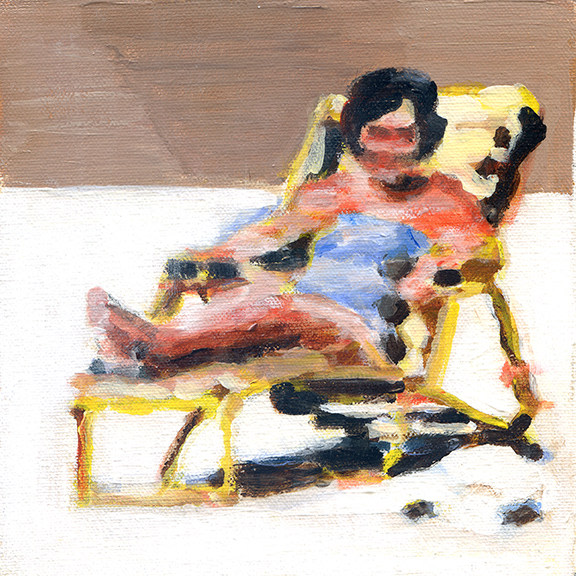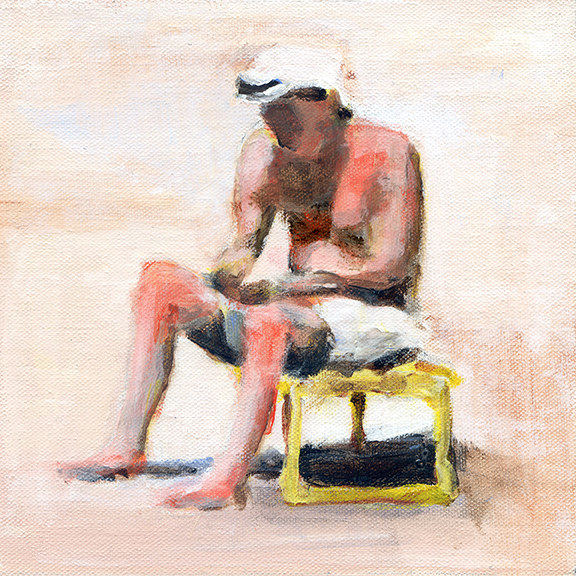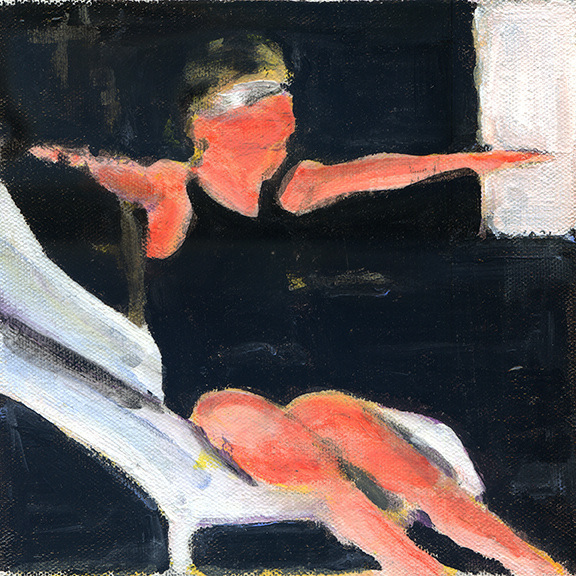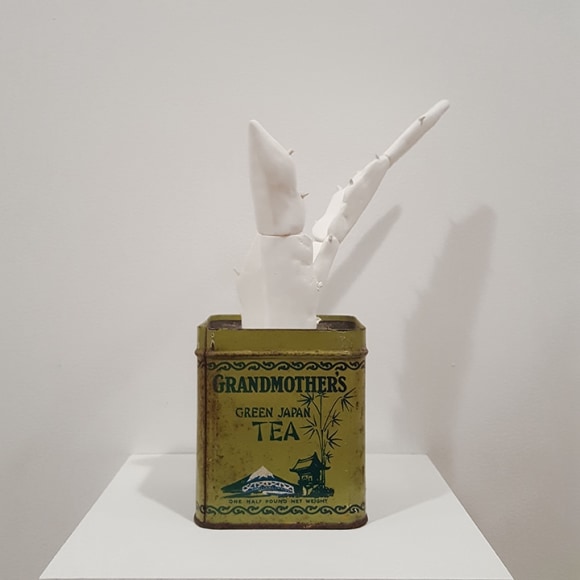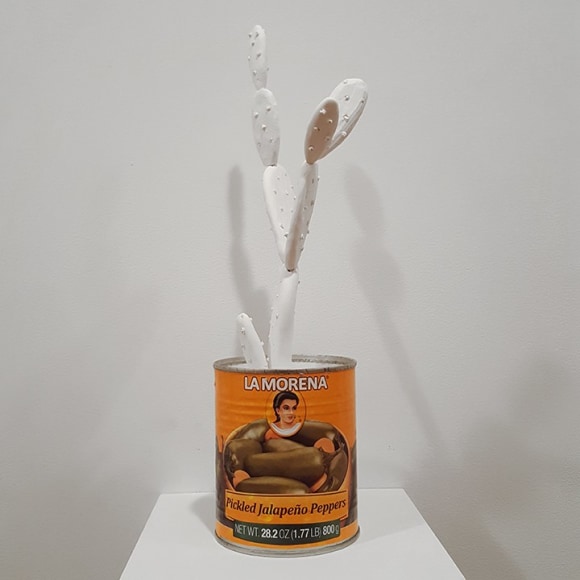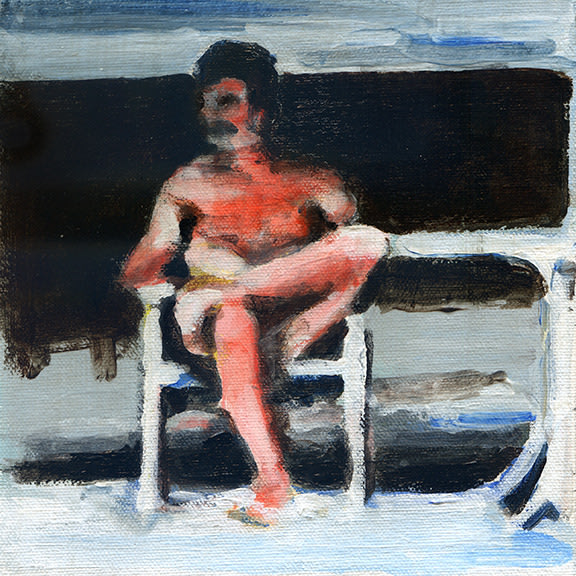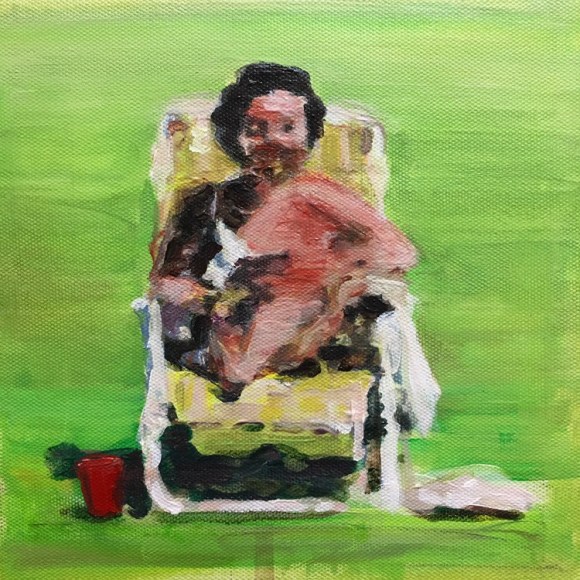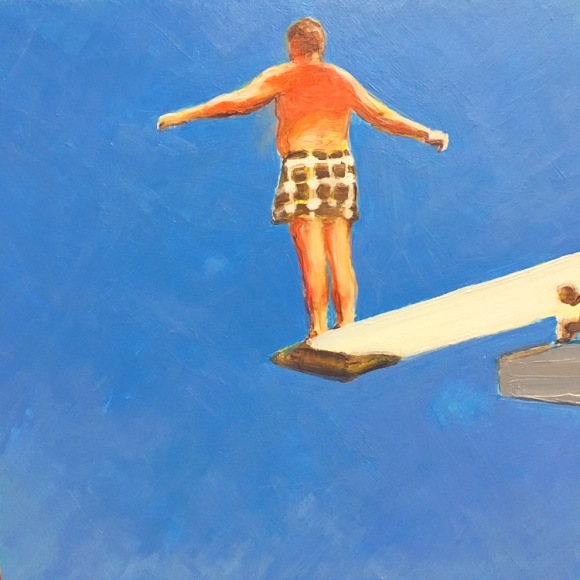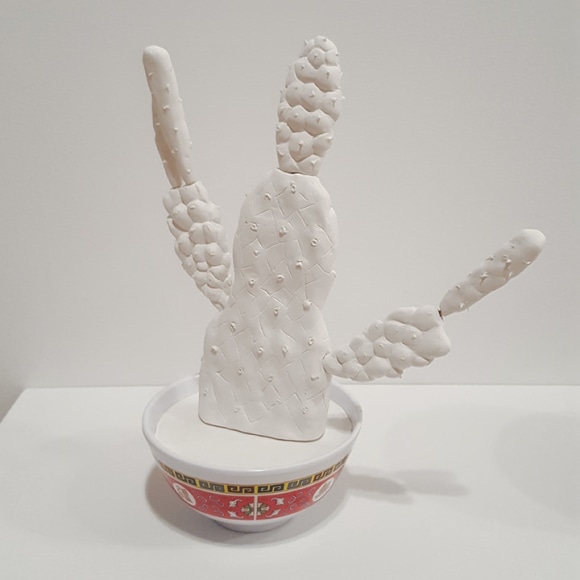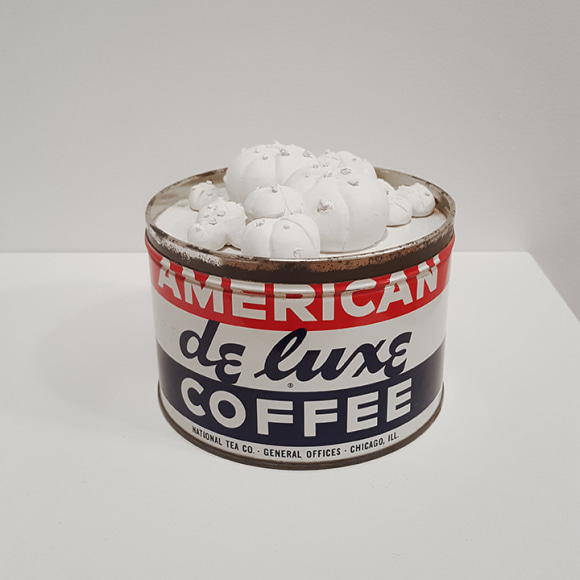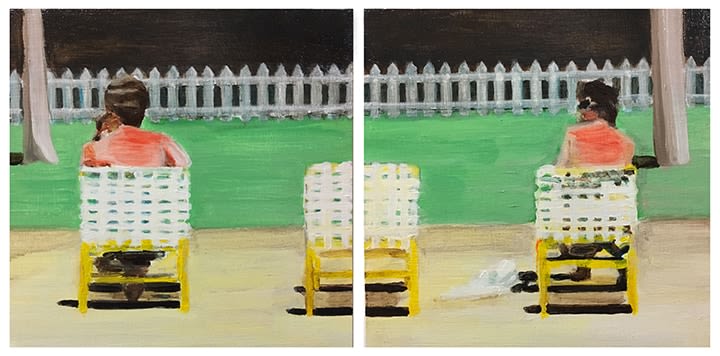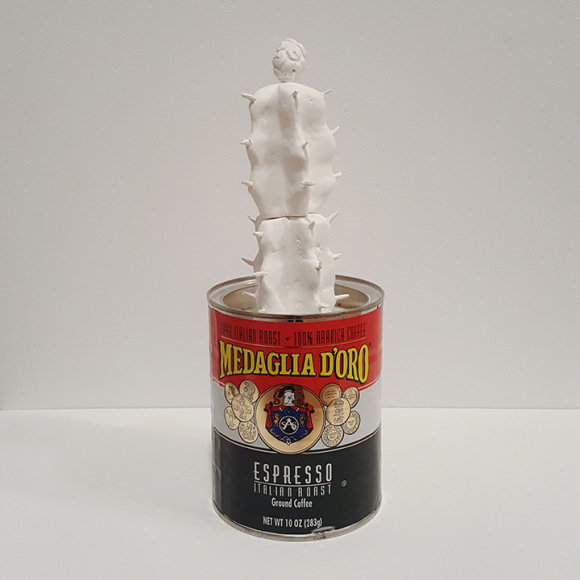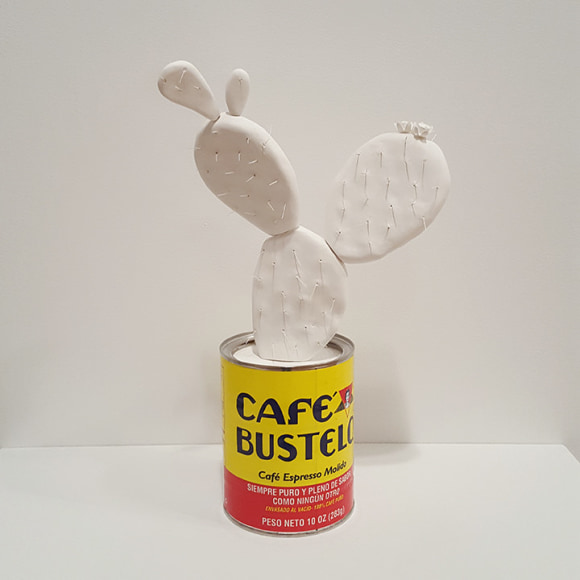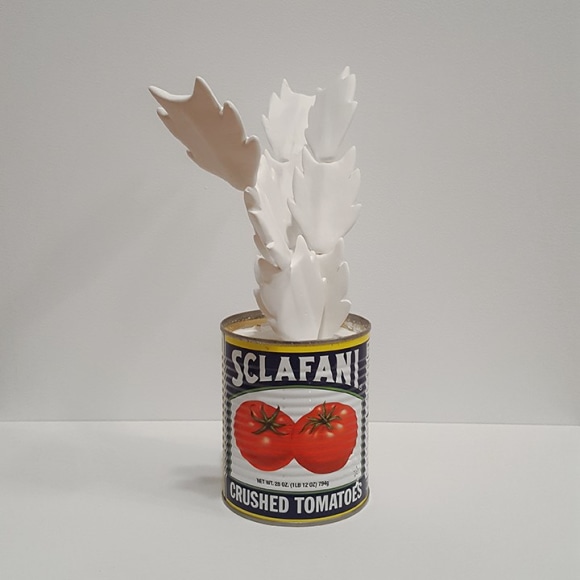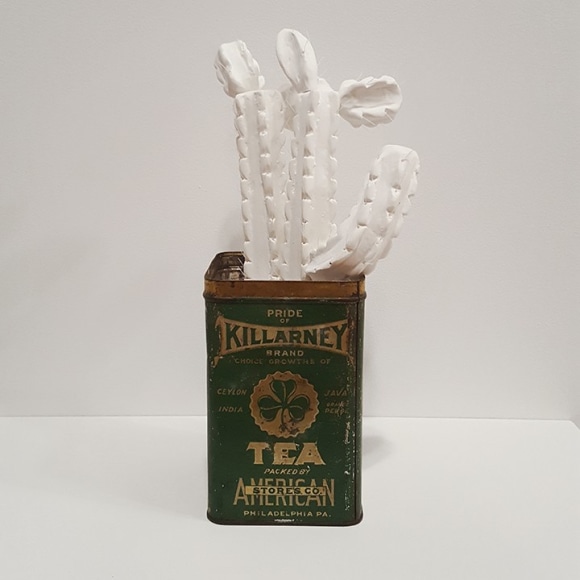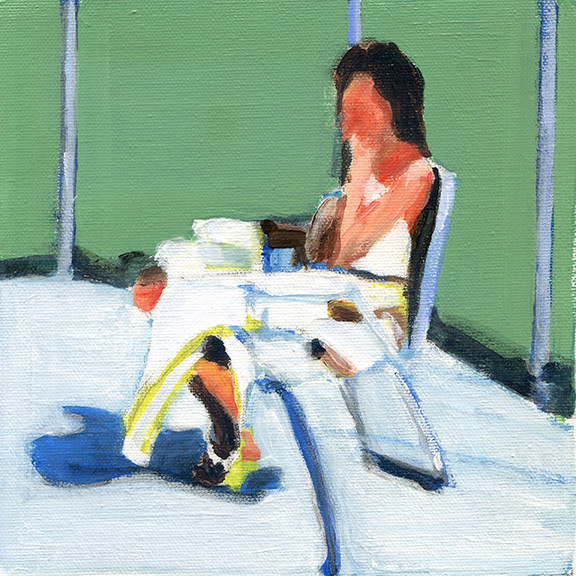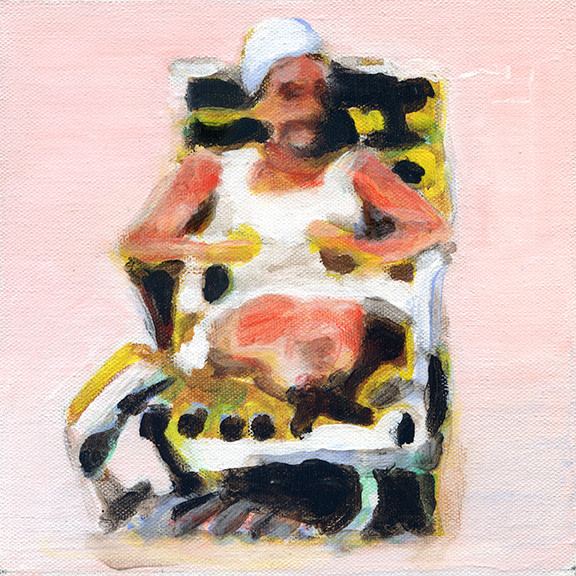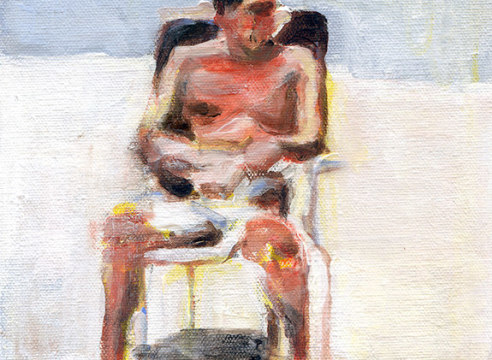
Mark Mann: O Uncolored People
May 17 - June 30, 2018
Opening Reception: May 17th, 6-8 PM
Mark Mann’s artwork touches on the interrelations of nostalgia, Americana, history, culture, memory and identity. This is achieved through the physical manipulation and contextual isolation of found imagery. The resulting paintings and sculptures become ruminations on the recent clashes over our shared American legacy.
For the last several years, Mann has worked on his painting series O Uncolored People. These center on closely cropped and blurry images of vacationers lounging around pools. Sunburnt, and unaware, the figures are white, middle class relics of a bygone era. They are culled from vintage promotional postcards depicting the heyday of American holiday resorts and tourist attractions, from the mid-1950s to the 70s. They reflect a time when Americans were most comfortable visiting domestic resorts and attractions. However, the trend faded into the past long ago.
Mann’s sunbathers represent a fantasy past, a false narrative of a uniform American cultural and economic class. Less iconic by modern standards, to us they appear lamentable. Their damage from over-exposure is self-inflicted, caused by their own habitual over-indulgence in leisure. There is also a blandness to these figures, a flat conformity. The title of the exhibition and painting series is Mark Mann’s homage to another artist who also documented the more mundane aspects of American culture: Ed Ruscha. Ruscha’s artist book Colored People (1972) was a humorous strike against the prejudices at the heart of the difficult times during the country’s culture wars. Instead of portraits of people of color, it offered photographs of cacti on plain white backgrounds. Mann also references Ruscha’s book is his own series of white plaster Cactus sculptures. Cacti are known to be among the hardiest plants on Earth. However, the sculptures are blank, and fragile if dropped. They are unable to handle change, and surprise. The cacti are housed in reclaimed tin cans, originally used to store imported food products: Italian tomatoes, Columbian coffee, Chinese tea. This could be a subtle reminder by the artist that America is built on the strength of its imports (immigrants).
The sculptural subterfuge also brings to mind the era of Spaghetti Westerns, which heralded a shift in the genre of the classic American Western film. Often shot on location in Italy or Spain, with international directors and actors (and some Americans) the films were often derided in America as a foreign, “revisionist” degradation of the beloved art form. In these films, the previously rigid moral and racial authority becomes blurred. The old “villains” can become heroes, and vice-versa.
Mark Mann’s final series, a group of sculptures based on military field stretchers, brings us full-circle to the damaged sunbather paintings. The original fabric has been replaced with the interlaced nylon straps originally used in beach chairs and pool loungers. Presented here is Pearl Heart, named for a female bandit from the Old West. Less well-known than her male counterparts, bandits such as Pearl Heart are often left out of the myth of the American West that is told and retold through lore, movies and tv. The legends of the Old West are central in the American psyche, and in the ongoing struggle to reconcile past myths of America’s greatness with the reality.

